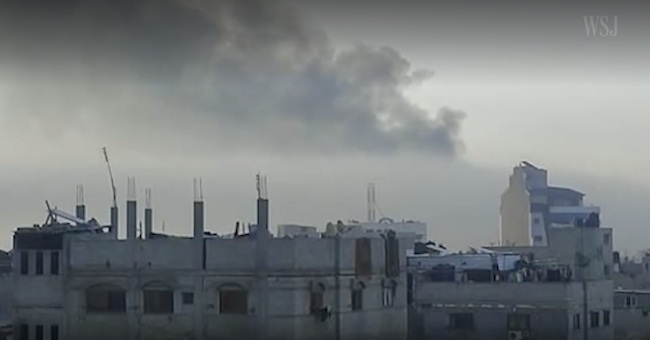Israeli troops pressed further into Rafah on Sunday but also engaged in fierce fighting in previously cleared areas around Gaza City, showing the difficulty of winning a decisive victory over Hamas as a guerrilla force.
Fighting also intensified in northern Gaza, where at least five Israeli soldiers were killed in recent days during clashes in a complicated urban environment where militants are re-establishing themselves. Israeli analysts say taking Rafah won’t deal a decisive blow to Hamas as long as it remains a potent insurgency that can pop up anywhere.
“The battle for Rafah should be the last battle of this war,” said Uzi Dayan, a former head of Israel’s National Security Council. “This doesn’t mean that this is the end of this war.”
Even if Israel were to subdue Hamas in the north, the sheer number of civilians in Rafah has constrained Israel, said retired Israeli Brig. Gen. Shlomo Brom. He said Israel may have lost much of its ability to use Rafah as a squeeze on Hamas by delaying the operation until the city absorbed so many internally displaced Palestinians.
Analysts said an operation in Rafah is most critical to shutting down Hamas’s smuggling of weapons into Gaza via Egypt, but that wouldn’t deal Hamas a knockout punch.
“It wouldn’t be an end to the war. An end to the war can be achieved only through a political decision by the two sides to agree on a cease-fire,” Brom said. “In this type of war, which is a war against a guerrilla force, I don’t think there are decisive moments,” he added.
Israel issued new evacuation orders around Rafah on Saturday as its forces pushed closer to the city’s center, though the military said the operation remains limited. Its troops moved in last week following rocket attacks by Hamas, securing key crossings and corridors, and striking more than 100 targets. Israel has told Egyptian officials that the Rafah action will take about two months, said Egyptian officials briefed on the matter.
Hamas’s military wing has taken credit for several recent rocket barrages toward military positions near Israel’s Kerem Shalom, also home to a key terminal for humanitarian aid. On Saturday evening, a separate rocket barrage injured a woman in the Israeli city of Beersheba, local medical authorities said.
The rockets underscored why Israeli leaders see Rafah as critical to achieving their war aims, which include eliminating any security threat to Israel from Gaza. Hamas’s military units in Rafah are believed to possess an arsenal of rockets.
“The idea that we will halt the war before achieving all of our goals is out of the question. We will enter Rafah and we will eliminate the Hamas battalions there,” Netanyahu said April 30, ahead of the current operation.
Israel is also counting on military action in Rafah to pressure Hamas into a deal that trades a temporary cease-fire for the release of some of the about 130 hostages remaining in Gaza from the 240 the militant group abducted in its Oct. 7 attack, which killed 1,200 Israelis, most of them civilians, according to Israeli authorities. On Saturday, Hamas said that a 51-year-old British-Israeli hostage died in captivity, allegedly from wounds sustained from an Israeli airstrike in an unspecified part of the strip. The Israeli military declined to comment.
Qatar, (NOT a neutral mediator) which hosts Hamas’s political office, has offered to revive stalled cease-fire talks.
Achieving a lasting end to the war will require a new government in Gaza to replace Hamas, which took control of the strip of 2.2 million Palestinians in 2007. Hamas will continue to fill the power vacuum until Israel brings in an alternative authority, Secretary of State Antony Blinken said Sunday. He may be right – but it is not up to him to decide Israel’s military strategy.
The congressionally approved funds and arms to Israel MUST be transferred without interference from the American administration.

